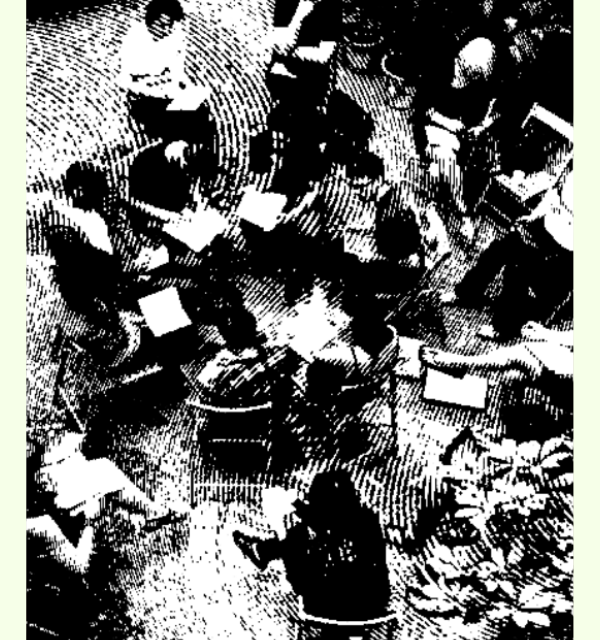A moving community of intensive study in politics, culture, and art, the primary objective of the Studio in Materialist and Decolonial (MAD) Politics and Aesthetics is to provide an egalitarian international platform for transdisciplinary work and collaboration in political theory and aesthetics accountable to and in conversation with materialist and decolonial imperatives.
Participants will share a stake in the question of method across the humanities and social sciences, operative in the realms of knowledge production and pedagogy alike, both within and outside the university. As theorists and theory-friends of various stripes, we want to ask how urgent political concerns can be kept in play to vitalize a decolonial materialism that is actively anti-colonial, anti-capitalist, and anti-fascist in form and content. Interested in suspending the presumptions that normalize settler colonial orders in the academy and the polity, we imagine a space hospitable to what is unsettled and insurgent in our time, as a locus for building together alongside existing structures.
MADly thinking, a materialist understanding of history implicates us in the present moment in a way that other epistemologies might not. To say this is also to ask that if the present moment is a result not only of our unfulfilled desires lying in a rubble at the doorstep of the oppressor, but of some fulfilled ones, what honest reckoning with our own political desires and attachments, their consummations and their frustrations, is requisite at this moment? What relations to each other and to our work must not be overlooked as objects of recognition, reflection, and reconstruction but also estrangement and abandonment? This decolonization of inquiry was never more needed.
A MAD method sees political desire in this moment as inseparable from our history of political attachments. A response to an austere neo-fascist necropolitics requires summoning the abundances of a commons by seeing politics and aesthetics necessarily entwined. A democracy of experiences and a democracy of inquiry are both integral to this abundance, and speak to a politics that runs counter to, or at least entirely disorients, the murderous efficiencies of racial capitalism, liberalism, and fascism that cohere in the ongoing colonial order. Taking up, and going beyond, the charge that a discussion of capitalism must always accompany a discussion of fascism, we are worried that a restitution of the academic order of inquiring into politics will feature this demand too superficially, and settle itself into old habits around the state of emergency. Resisting methodological nationalisms and pious secularisms in the discussion of race and religion is needful, as is the temptation to repeat history by severing the emergencies of fascism and decolonisation, a tactic that has everything to do with the ugly denouement of the “new world order” after WWII.
These and similar impulses inform the Studio’s emphasis on an ongoing critique and enactment of method that can only be possible by centring a range of aesthetic and writing practices, including but not limited to, the act of writing political theory. The intensive space of collaborative reading will have us returning to our projects not to defend and finalise them but to approach them anew with different tools, and imagining new accountabilities beyond the fabled theory/practice, activist/intellectual, and teacher/scholar divides across disciplines and institutions.
Our work with the Studio over the years has laid the groundwork for the GCAS-Jehān programmes in Materialist, Anticolonial, and Diasporic (MAD) Studies. Please read more here: gcas-jehan.org.
